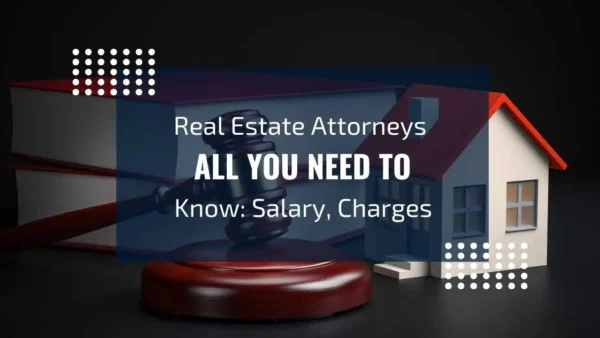Selling your property for sale doesn’t have to be overwhelming or stressful. Whether you’re aiming for a fast sale or the best possible price, a structured approach ensures success. By leveraging expert advice from seasoned estate agents, you can make your home for selling attractive to buyers, achieve competitive pricing, and minimize the time your property stays on the market.
This guide walks you through a comprehensive checklist to streamline your property sale, helping you focus on what truly matters.
Plan Your Budget for a Smooth Process
Before placing your home for selling, planning your budget is critical. Start by evaluating all the expenses associated with the sale.
- Renovation Costs: Small upgrades like painting walls, repairing fixtures, or deep cleaning can make a huge impact. Major upgrades like refurbishing a kitchen or bathroom could yield higher offers.
- Selling Costs: Factor in agent fees, solicitor fees, and conveyancing costs.
- Relocation Costs: If you’re living in the property for sale, account for moving expenses and temporary accommodation costs, if needed.
By planning ahead, you’ll avoid financial surprises during the selling process.

Timing Is Everything
The timing of your home for selling can significantly affect its success.
- Market Trends: Spring (February–April) and autumn (September–November) are peak seasons for selling.
- Quick Sales: If you need to sell outside peak times, work with experienced estate agents who specialize in quick sales and know how to position your property competitively in the market.
Understanding market trends and aligning your timeline accordingly can make a big difference in achieving your goals.

Conduct Research and Get a Professional Valuation
To price your property for sale competitively:
- Compare Prices: Use online resources to check listings and recently sold prices for similar properties in your area.
- Hire a Professional Valuer: Choose a reputable local valuer or estate agent who provides a realistic price based on the current market and your property’s condition.
- Avoid Overpricing: Inflated prices deter potential buyers and prolong the selling process.
A correct valuation ensures that you attract serious buyers and receive offers in line with market expectations.
Choose Reliable Estate Agents and Solicitors
Professional guidance is crucial when preparing your home for selling.
- Estate Agents: Look for agents with local expertise and a track record of success. Discuss terms like contract duration, fees, and whether they operate on an exclusive or multi-agent basis.
- Solicitors: Hire a solicitor early in the process to handle legal paperwork, ensure compliance, and prepare sale-related documents, including title deeds and contracts.
By working with trustworthy professionals, you’ll have the support needed to navigate the complexities of selling.

Optimize the Presentation of Your Property
The presentation of your property for sale can make or break the deal.
- Declutter and Clean: Create a clean, organized, and welcoming environment.
- Depersonalize: Remove personal items to allow buyers to envision themselves living in the space.
- Enhance Curb Appeal: The exterior is the first thing buyers see. Ensure the lawn is trimmed, the driveway is clean, and the entrance is inviting.
- Stage the Property: Highlight the home’s strengths by arranging furniture to create an appealing flow. Tailor staging for your target audience, such as families or young professionals.
A well-presented home for selling attracts more buyers and higher offers.
Market Your Property Effectively
Marketing is key to reaching potential buyers.
- High-Quality Photos: Invest in professional photography to showcase your property for sale in the best light.
- Online Listings: Advertise on popular property portals and social media platforms.
- Virtual Tours: Offer 3D tours for convenience and broader reach.
- Highlight Key Features: Emphasize unique selling points such as a spacious garden, modern interiors, or proximity to schools and amenities.
Effective marketing ensures your property stands out in a competitive market.

Be Flexible with Viewings
Accommodating buyer schedules can lead to a faster sale.
- Open Houses: Organize open house events to attract multiple buyers.
- Virtual Viewings: Offer virtual tours for buyers unable to visit in person.
- Maintain Readiness: Keep the property in a presentable state to accommodate last-minute viewing requests.
Flexibility can significantly enhance buyer interest in your home for selling.
Prepare Essential Paperwork
Having paperwork ready simplifies the process.
- Property Title Deeds: These documents prove ownership of the property. They show the legal rights to sell the home and any restrictions or claims against it.
- Energy Performance Certificate (EPC): The EPC rates your property’s energy efficiency. It’s required by law when selling or renting in the UK and helps buyers understand running costs.
- Mortgage Details: Provide information about any outstanding mortgage. This includes the balance left to pay and the lender’s contact details, which helps when transferring ownership.
- Fittings and Contents Form (TA10): This form lists items included in the sale, such as appliances, light fixtures, and furniture, to avoid disputes between you and the buyer.
- Property Information Form (TA6): This form provides detailed information about the property, such as boundaries, legal issues, and any past problems like disputes or repairs.
- Leasehold Documentation (if applicable): If the property is leasehold (you only own the property for a set period), you’ll need documents like the lease agreement and details of the ground rent or service charges.
Working with your solicitor and estate agent ensures these documents are prepared, accurate, and ready, reducing delays in the selling process.

Negotiate Smartly
When offers start coming in:
- Evaluate Each Offer: Don’t rush to accept the first offer. Consider factors like the buyer’s financial position and readiness to proceed.
- Counter Offers: If the offer is below your expectations, negotiate for better terms.
- Trust Your Agent: Rely on your estate agent’s expertise to navigate the negotiation process and secure the best deal.
Patience and strategy often lead to more favorable outcomes.
Close the Sale
Once an offer is accepted:
- Work with your solicitor to finalize contracts and transfer ownership.
- Ensure all financial and legal obligations are met.
- Celebrate your successful sale and plan your next steps!

Conclusion
Preparing your home for selling involves careful planning, market knowledge, and professional guidance. By following this comprehensive guide, you’ll position your property for sale to attract buyers, secure the right price, and enjoy a smooth selling experience.
Frequently Asked Questions
The time it takes to sell a property typically ranges from 6 to 8 weeks, but this can vary depending on factors such as the property’s location, condition, and the real estate market. If you’re in a seller’s market with high demand, the process could be faster, while in a slower market, it may take longer to find the right buyer.
Renovating before selling can increase your property’s appeal, but it’s essential to weigh costs against potential returns. Minor upgrades, such as painting walls and fixing small repairs, are relatively inexpensive and can make a big difference. However, larger projects, like full renovations, should be considered only if they add significant value to the property.
Choosing the right estate agent is crucial for a smooth sale. Look for agents who have local market expertise, a solid track record, and positive customer reviews. They should also offer a fair commission structure and good communication. Meeting with a few agents and comparing their marketing strategies can help you find the best fit for your needs.
An Energy Performance Certificate (EPC) assesses the energy efficiency of your property. It provides a rating from A (most efficient) to G (least efficient). The EPC is a legal requirement when selling or renting out a property in the UK. It helps buyers understand potential energy costs and is part of the disclosure process during a sale.





